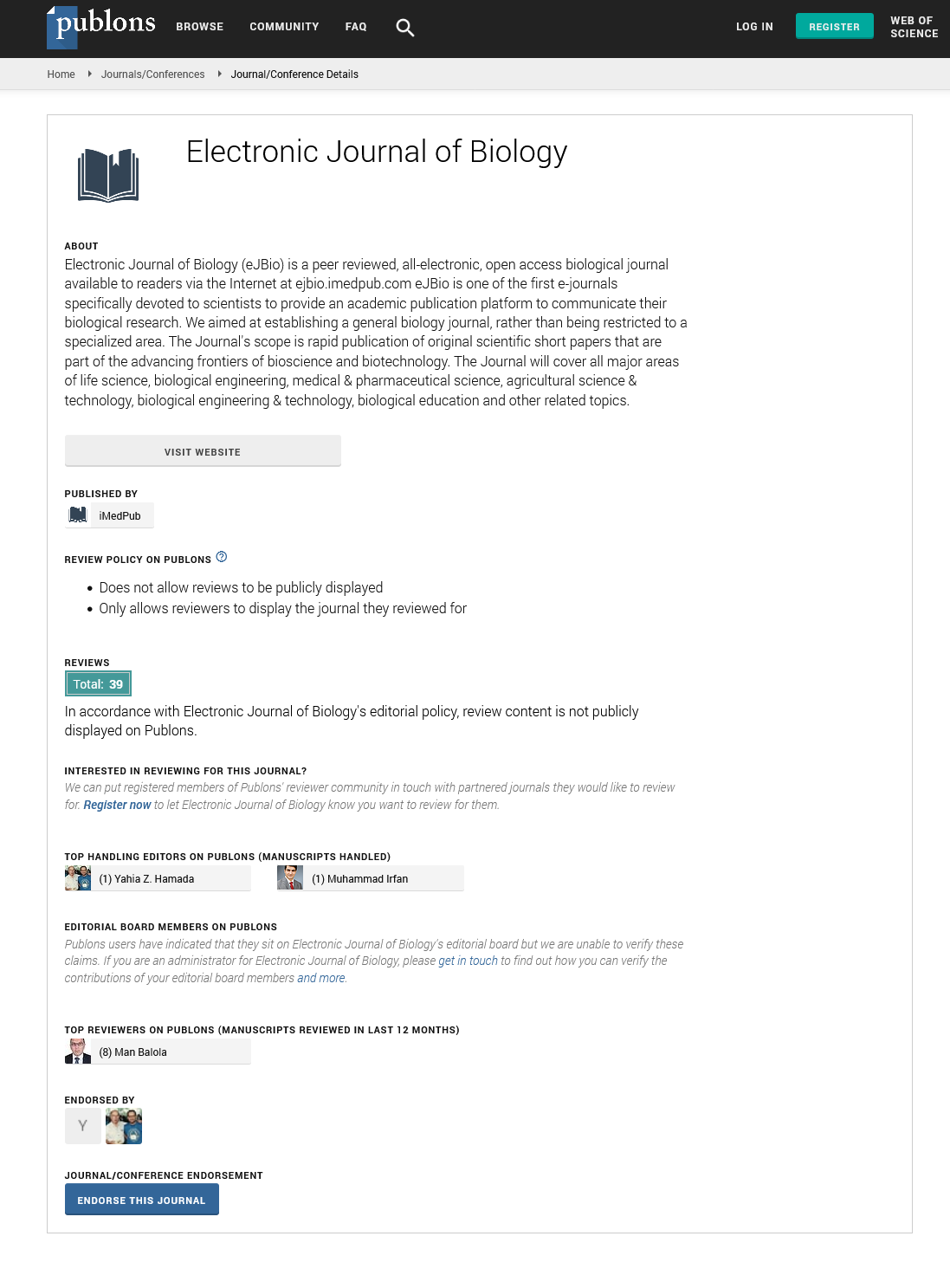Abstract
Genetic Variation amongst Four Rabbit Populations I Nigeria Using Microsatellite Marker
Seven microsatellite markers were used with 100 genomic deoxyribonucleic acid (DNA) isolated from New Zealand White, New Zealand Red, Californian White and Chinchilla rabbit breeds in Nigeria to determine genetic variation amongst the breeds. Power of microsatellite markers i.e., Combined Exclusion Probabilities (CEP) and Polymorphism Information Content (PIC) of markers; were determined to ascertain the informativeness of the markers. Equal number of samples (that is, 25 samples) was obtained from each of the rabbit population. Polymerase chain reaction (PCR) was carried out using each marker, isolated DNA, and double distilled water and PCR Master Mix. PCR products generated were subjected to polyacrylamide gel electrophoresis on an ABI 3730 DNA Sequencer. DNA bands were scored based on size of ladder with Gene Scan 3.1.2. Bands obtained were designated as alleles and prepared into Excel Worksheet. With Microsatellite Analyser version 4.05 software and allele frequencies were generated. Mean inbreeding coefficient across loci (FIS) was -0.0201 and average genetic differentiation (FST) among breeds was 0.0479. Seventy nine alleles of which 18.98% were rare and 81.02% represent fixed alleles across the rabbit populations were observed. PIC per marker across populations ranged from 0.6800 (SAT 8) to 0.8100 (SOL 28) indicating that the markers were informative (PIC ÃÆâÃâââ¬Â°ÃâÃÂ¥ 0.50). CEP across markers and populations was 0.999999, meaning that the selected microsatellite markers were suitable for parentage verification of these four rabbit breeds.Author(s):
Adewunmi O Omotoso*, Olajide Olowofeso, Matthew Wheto, Olajide M. Sogunle
Abstract | Full-Text | PDF
Share this

Awards Nomination
Google scholar citation report
Citations : 5001
Electronic Journal of Biology received 5001 citations as per google scholar report
Electronic Journal of Biology peer review process verified at publons
Abstracted/Indexed in
- Google Scholar
- China National Knowledge Infrastructure (CNKI)
- CiteFactor
- Electronic Journals Library
- Zoological Records
- WorldCat
- Proquest Summons
- Publons
- MIAR
- Openaccessarticles.com
- Secret Search Engine Labs
Open Access Journals
- Aquaculture & Veterinary Science
- Chemistry & Chemical Sciences
- Clinical Sciences
- Engineering
- General Science
- Genetics & Molecular Biology
- Health Care & Nursing
- Immunology & Microbiology
- Materials Science
- Mathematics & Physics
- Medical Sciences
- Neurology & Psychiatry
- Oncology & Cancer Science
- Pharmaceutical Sciences


